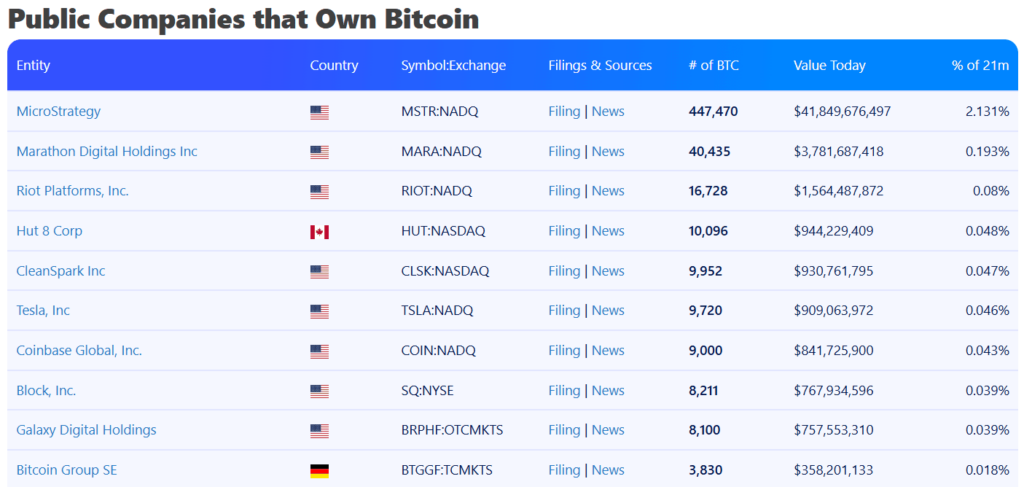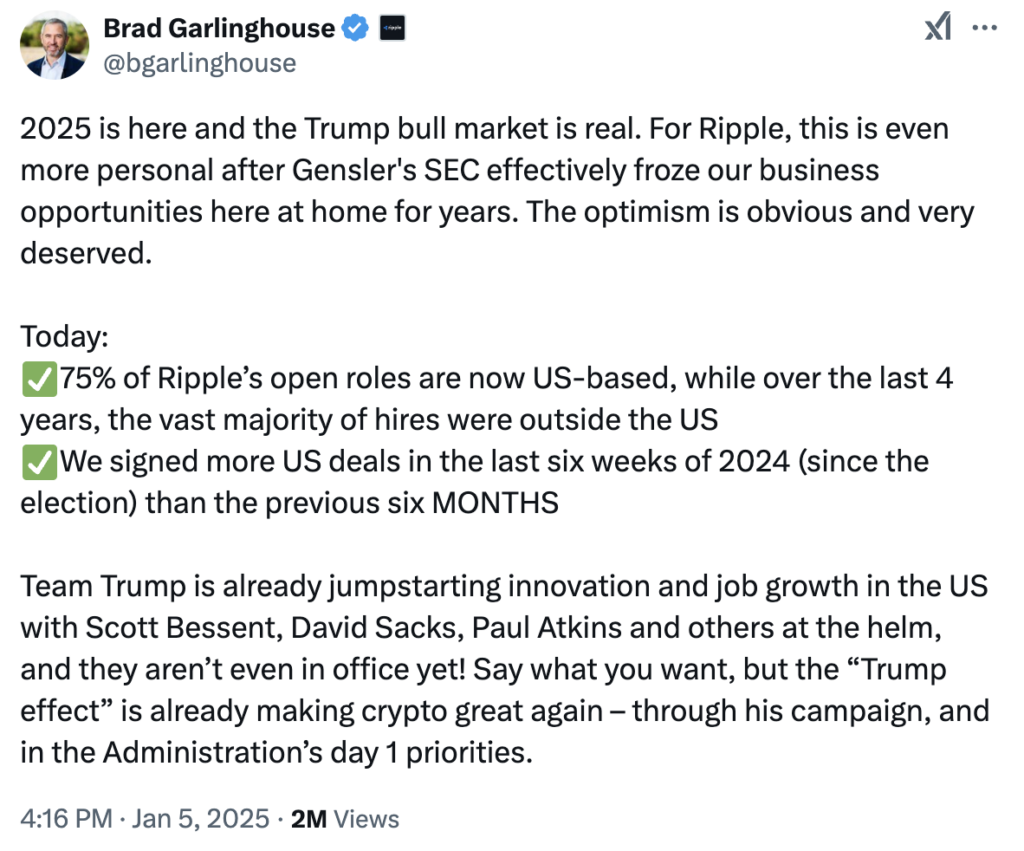- January 12, 2025
- Category: Crypto

This week brought a variety of hot topics in the world of crypto. Proposed consumer protections for digital wallets, market trends, DOJ approval to sell Silk Road’s Bitcoins, growing number of US companies holding BTC and $3 billion losses from crypto hackers in 2024, showcased the sector’s dynamic nature. Here’s a look at the key news shaping the crypto market this week.
DOJ Grants Court Approval to Sell 69,370 BTC in Silk Road Case
Chief U.S. District Judge Richard Seeborg has denied a motion by Battle Born Investments and 1st One Hundred Holdings to block the sale of 69,370 BTC in the Silk Road darknet marketplace case, giving the DOJ final approval to sell the crypto assets. Battle Born Investments claims to own 69,370 BTC (~$6.5 billion) through a bankruptcy filing filed after Silk Road closed in 2013. The company filed a lawsuit in 2022 to reclaim the assets seized in the case but was denied. The firm then appealed but lost again. In October 2024, the US Supreme Court denied Battle Born Investments’ petition to hear its lawsuit against the government. Even then, there was information that the frozen Bitcoins could be sold in full. Seaborg’s decree is dated December 30, 2024.
The Share of American Companies in Bitcoin Reserves Updated Its All-Time High
The share of US companies in Bitcoin reserves updated its ATH. The volume of reserves under the control of US counterparties exceeds that of foreign firms by 65%. As noted by CryptoQuant, the indicator is calculated as the ratio of Bitcoin reserves of American organizations and known offshore holders. The first category includes not only companies, such as MicroStrategy, but also exchange-traded funds, as well as the government.

This ratio reached 1.66 on December 16, 2024. This means that at that time, the Bitcoin reserves of American counterparties exceeded those of foreign ones by 66%. As of January 6, it is 1.65. The absolute values of these reserves for both categories of counterparties are not specified in the metric. Up until the end of January 2024, the indicator remained less than 1. This means that the reserves of foreign firms exceeded those of American counterparties.
The indicator began to grow in September 2024. Note that according to the Bitcoin Treasuries portal, eight of the top 10 public companies that hold Bitcoin on their balance sheets are registered in the United States.

Ripple Labs CEO Announces Company Success in the United States After Trump’s Victory

Ripple Labs (XRP) CEO Brad Garlinghouse announced the company’s development in the United States of America after Donald Trump was elected president. According to him, as of January 5, 2025, 75% of open positions at Ripple are in the United States, “while over the past four years, the vast majority of hiring has occurred outside the country.” In addition, the CEO of Ripple Labs added that since the presidential election (the last six weeks of 2024), the company has signed more deals in the United States than in the previous six months. Brad Garlinghouse noted that the “Trump bull market” is real. According to him, for Ripple Labs, “it’s even more personal” after the US Securities and Exchange Commission, under the leadership of Gary Gensler, effectively froze the company’s business opportunities in the country for many years.
Oklahoma Introduces Bitcoin Payroll Bill
Senator Dusty Devers of Oklahoma has filed a bill called Bitcoin Freedom Act (SB325). It aims to allow payroll and payment acceptance by service providers in bitcoin.
He said that the state of Oklahoma must take action to protect its residents as Washington continues to undermine the stability of the US dollar. SB325 is a guarantee of respect for the free market and will give employees, employers, and businesses the opportunity to choose the payment options that work for them, Divers emphasized. If passed, residents of the state will be able to choose to be paid in Bitcoin, and financial services providers will be able to process payments in the first cryptocurrency.
The government website indicates that the bill will be considered in the next session. It begins on February 3, 2025. If approved, the bill will go to the desk of Governor Kevin Stitt, who can either sign it or reject it.
CFPB Wants to Force Crypto Platforms to Reimburse Fraud Victims
On January 10, the CFPB announced a proposed rule that expands the Electronic Funds Transfer Act (EFTA) to include accounts that use “new payment mechanisms.” This effectively puts crypto accounts on par with traditional bank accounts, subjecting them to the same fraud prevention standards.
The bureau also proposes redefining “funds” to include assets beyond $. Additionally, wallet providers would be required to disclose important consumer rights. Regular reporting and notifications of changes to terms would also be mandatory. If adopted, the rule could provide greater protection for consumers transacting in stablecoins and other digital assets. Public comment on the proposal is open until March 31, after which the CFPB will determine its next steps.
In 2024, Hackers Caused Over $3 Billion in Losses to the Crypto Industry
According to PeckShield analysts, the damage caused by hackers in the crypto industry in 2024 exceeded $3.01 billion.
Analysts noted a 15% increase in damage compared to the 2023 figure of $2.61 billion. The amount for 2022 was $3.15 billion.
Over 300 recorded hacker attacks resulted in a loss of about $2.15 billion—30% more than in the previous year. The remaining $834.5 million was the result of fraudsters.
The Ethereum blockchain accounted for 47.3% of the funds stolen during the year and 34.8% of hacks. Bitcoin ranked second in damage with 14.6% and became the fourth network regarding the number of hacks, accounting for 3.6% of attacks.
According to experts, DeFi projects remain a popular target among hackers, with 53.5% of losses related to hacks of decentralized protocols.
At the same time, in 2024, there were more frequent cases of exploitation of user errors in cybersecurity and poor private key management. The share of such cases among all attacks increased from 33% to 44% compared to 2023.
The largest incidents were the hacks of DMM Bitcoin with damages of $305 million, PlayDapp with $290 million, and WazirX with ~$230 million.
During 2024, it was possible to return stolen assets worth about $488.5 million.

